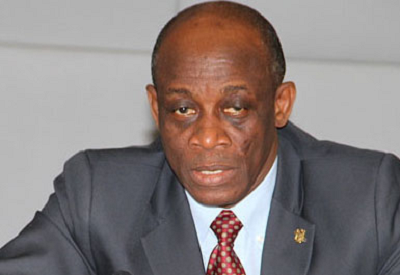
Mixed reaction greets mid-year review
There is this posture by the economic managers that seems to suggest that the economic growth of the country is gradually getting into darting strides.
Advertisement
Last week, the Bank of Ghana, after the conclusion of its 71st Monetary Policy Committee meetings, issued an accompanying press statement, which, among others, pointed out a strong investor and consumer confidence in the economy.
This week, the fiscal authorities have also affirmed further developments in the economy, which all but confirm the long held belief that the homegrown policies developed by the government, which has also found favour with the International Monetary Fund (IMF), is gradually bearing some good results.
Most importantly, the Finance Minister, Mr Seth Tekper, has explained, yet again, why there is every reason for us to be bullish about the economy.
In a review of the economy presented to Parliament on July 25, with particular reference to its performance in the first six months of the year, Mr Tekper offered insight into some key indicators that all pointed to an economy that had the hallmark of one that was ready for serious growth.
For instance, the growth of the economy by 4.9 per cent in the first quarter of the year compared to 4.5 per cent for the same period last year came up for mention.
Again, the country’s debt to GDP ratio, which gives a strong indication on whether a country’s debt stock has moved beyond sustainable levels, stood at 63 per cent at the end of May but was at 72 per cent at the end of 2015.
“Certainly this is not the trajectory that will take the nation back to HIPC (Highly Indebted Poor Countries, the initiative that gives support to distressed countries, sometimes through debt forgiveness schemes moulded in various ways) as some have suggested” the Minister said.
Coupled with a fairly stable currency and inflation that is held in check, the review appears satisfying, even though revenue shortfall seems to have had a knock-on effect on the fiscal consolidation plan.
But the removal of the fiscal stabilisation levy owing to the positive developments of the economy points to a manageable situation in the short to medium term.
Today, the Monetary Policy Rate, the marker for determining interest rate on most money instruments, remains at 26 per cent maintained at that level for several months because of the strengthening economic fundamentals.
And in the currency market, mixed performance, but fairly stable cedi enjoyed some growth against the US dollar and the British pound sterling but lost grounds against the euro from January to April.
To put in statistical perspective, the cedi experienced cumulative depreciation of 2.8 per cent against the euro but gained 1.7 per cent against the British pound sterling during the period under review.
And as indicated earlier, it wasn’t all good news. According to the Minister, tax revenue was short of target by what is estimated as GH¢1 billion. On target revenue of GHȻ11 billion, Ȼ10 billion was realised.
The shortfall, the Minister explained, was due to commodity price shocks, which had experienced considerable drop during the reporting period. Ghana, as a primary commodity exporter, is subjected to cyclical commodity price shocks.
This means that the country has no control over price and therefore is at the mercy of the dictates of the market.
And not that in a free market economy one can have a strong influencing control over the market but processed and semi-processed commodities tend to hold their own on prices well because sometimes the timing of release of such products to the market could be delayed to smooth out prices when there is a glut or that available direct substitutes could be in short supply, causing prices to be fairly stable, or rise under certain circumstances.
But this is not the same for most primary commodities. For instance, as the Minister also explained, the national budget for 2016 had planned for crude oil revenue based on a price per barrel (ppb) of US$53.06.
However, at one point during the period under review, the price dropped to as low as US$28 ppb and even today’s trading price of US$45 to US$48 ppb, though encouraging, does not bring the desired comfort as far as revenue mobilisation effort is concerned.
But not all got convinced on the review as recriminations started as soon as the Minister finished with his presentation.
Contributing to the debate on the presentation, the Deputy Minority Leader in Parliament, Mr Dominic Nitiwul, in an interview with a local radio station appeared not impressed with some of the claims the Minister made.
“I think that the Finance Minister could have done much better” he said.
Dwelling on other aspects of the presentation, Mr Nitiwul explained that he felt some form of deviation by the Minister from the main reason why he was to present the review to Parliament and also that the economic outlook could possibly not be like what was presented by the Minister.
But frankly, the mid-year review by the economic managers and the reaction by market watchers and analysts should not be the least surprising because economics and debates around it throw up such disagreements on positions always.



